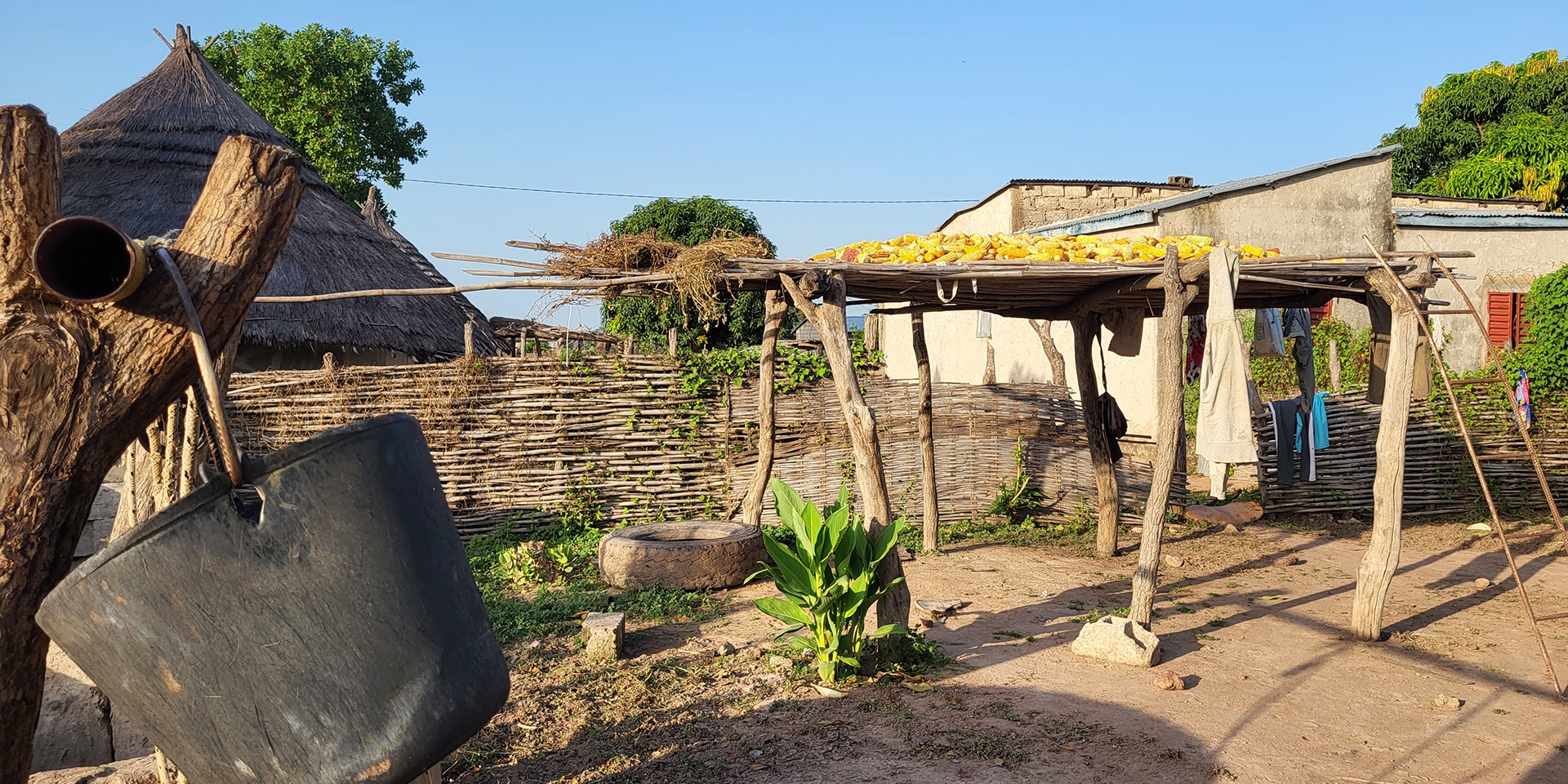
Photo: a small farmer`s backyard in Bagadaji (Senegal)
Sustainable improvement in the food and nutrition security.
Approx. 40.000 people in 8 communities in the district of Mampatim are indirect involved. 4,000 people (2.400 women and 1.600 men) from rural households (mainly grain producers, small farmers, women's groups) are directly involved.
The Kolda region in the south has important natural and forestry resources (agriculture, livestock farming, forestry). Around 60 % of the population (630.000) lives in rural areas. The effects of climate change have already become a reality in the region and have already affected the Kolda region with large temperature and rainfall variability. This leads to lower agricultural yields, putting households in situations of food insecurity. PIRSA III's intervention strategy is based on the household approach, which is producer-centered and focuses on rice, millet and maize value chains that can promote food security through agriculture and women's empowerment.
Following the great drought of 1973 and the closure of the only groundnut shelling factory in the Kolda region, the young people of Dialambéré (Dabo district) created a village association. Its areas of intervention are Human Rights, Protection of Children and Vulnerable Groups; Food Security, Entrepreneurship and Climate Change; Education/Training, Health, Water and Hygiene.